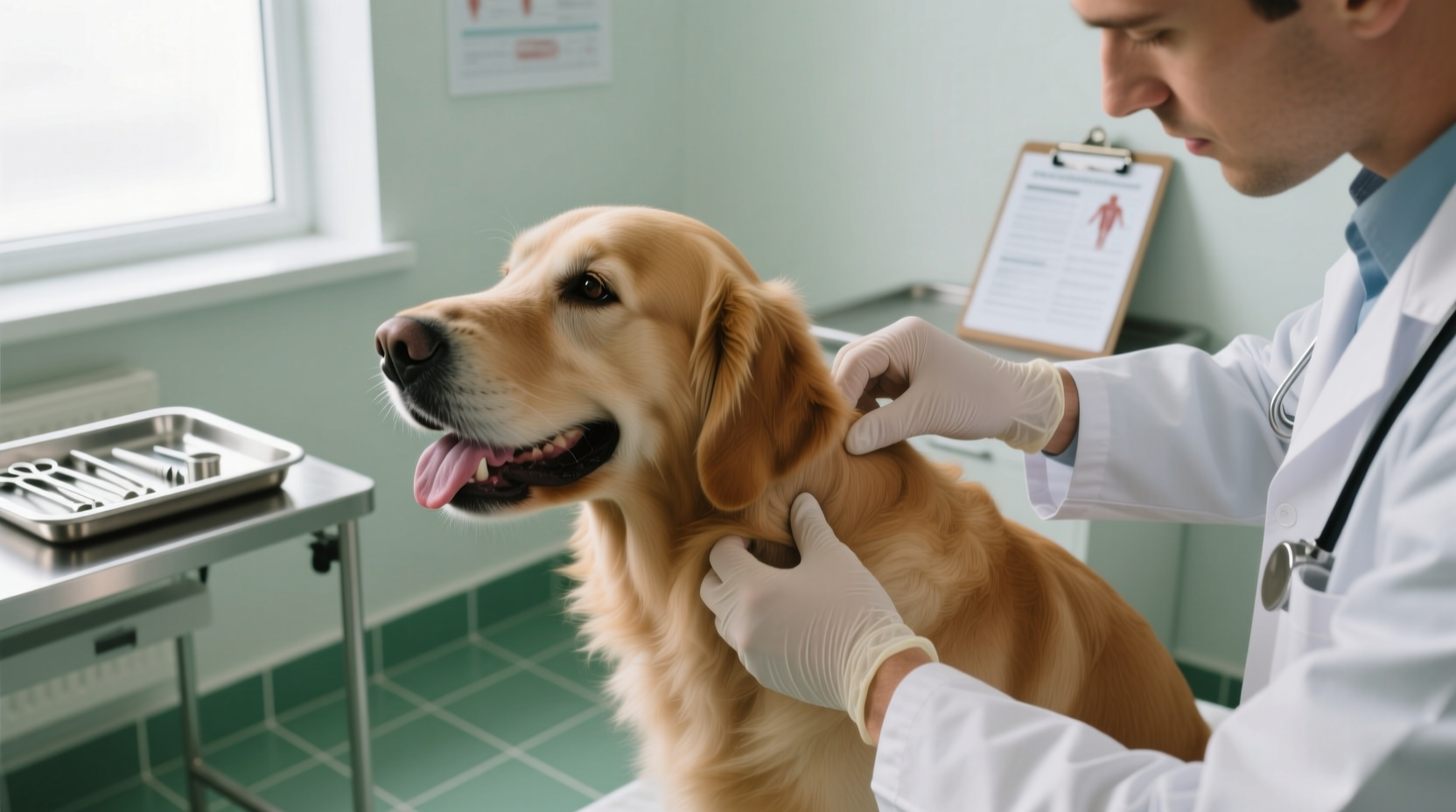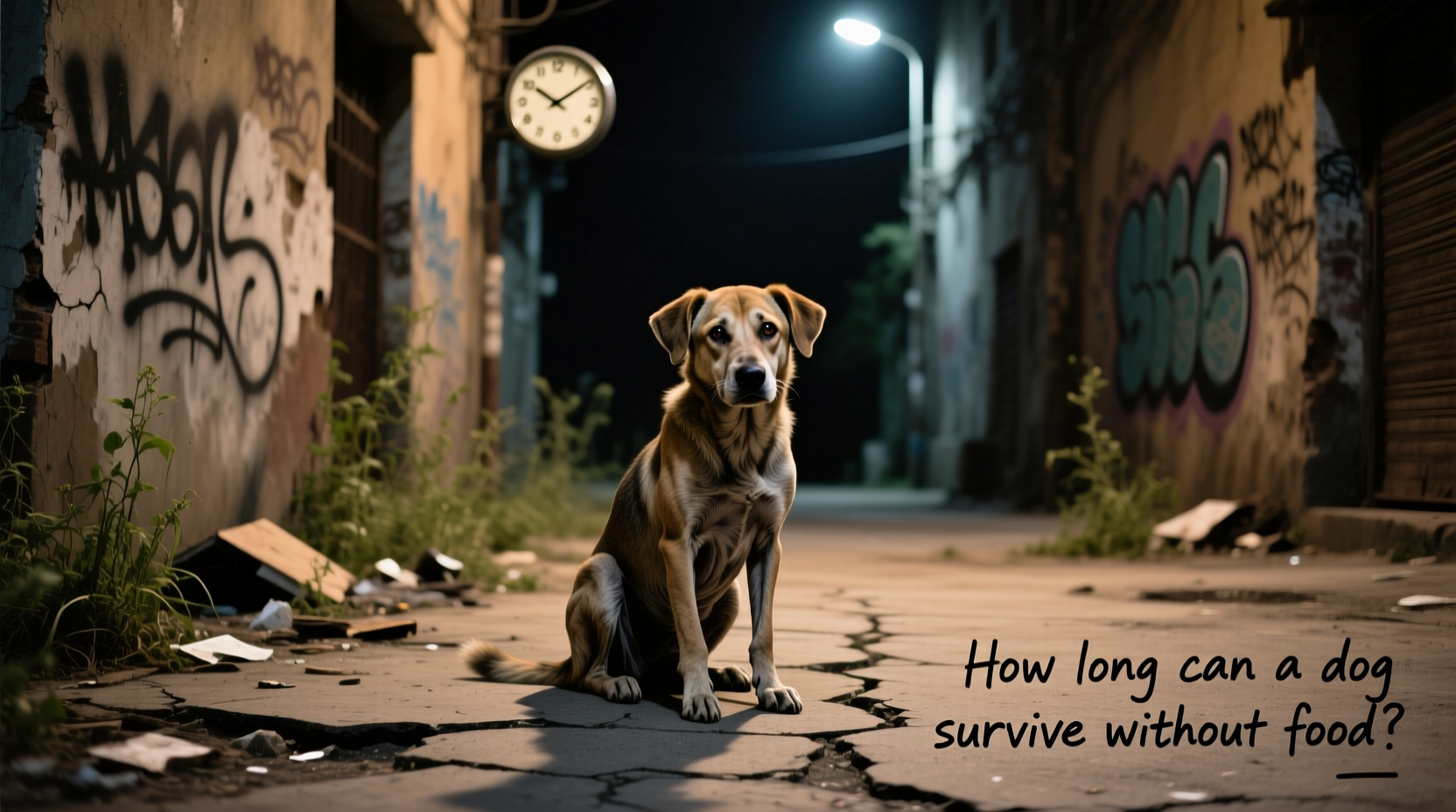Understanding Canine Survival Without Food: What Every Dog Owner Must Know
When your dog refuses meals, panic sets in quickly. You're not alone - millions of pet owners face this stressful situation annually. Understanding the real timeline isn't just academic knowledge; it's critical for making life-saving decisions. This guide provides vet-verified information to help you recognize danger signs and take appropriate action before it's too late.
The Critical Timeline: Day-by-Day Effects of Food Deprivation
Your dog's body follows a predictable physiological response when deprived of food. Recognizing these stages helps determine urgency:
| Time Period | Physiological Changes | Visible Symptoms |
|---|---|---|
| 24-48 hours | Body switches to fat reserves; blood sugar drops | Mild lethargy, decreased playfulness |
| 48-72 hours | Metabolism slows significantly; organ function affected | Noticeable weakness, trembling, vomiting |
| 72+ hours | Severe dehydration; organ stress increases dramatically | Extreme lethargy, sunken eyes, collapse |
This timeline comes from the American Veterinary Medical Association's canine nutrition guidelines, which emphasize that individual variation makes precise predictions impossible. Puppies under 6 months may show severe symptoms within 24 hours due to their limited energy reserves.
Four Key Factors That Dramatically Alter Survival Time
While the 3-5 day guideline provides a general framework, these four factors can shorten or extend your dog's survival window significantly:
- Hydration status: Water matters more than food - dogs can survive weeks without food but only 2-3 days without water. Dehydration accelerates organ failure.
- Underlying health conditions: Diabetic dogs may develop life-threatening complications within 24 hours according to American College of Veterinary Surgeons research.
- Environmental temperature: Cold weather increases energy needs while heat accelerates dehydration.
- Body condition: Overweight dogs have more reserves but face additional health risks from rapid weight loss.

Five Warning Signs Requiring Immediate Veterinary Attention
Don't wait for the 72-hour mark if you notice these critical symptoms:
- Complete refusal of both food AND water for more than 24 hours
- Visible signs of dehydration (skin that doesn't snap back when pinched, dry gums, sunken eyes)
- Vomiting or diarrhea accompanying appetite loss
- Extreme lethargy where your dog can't stand or respond normally
- Trembling or weakness that worsens over time
According to a 2023 study published in the Journal of Veterinary Emergency and Critical Care, dogs showing three or more of these symptoms have a 73% higher risk of developing irreversible organ damage when treatment is delayed beyond 48 hours.
Action Plan: What to Do When Your Dog Stops Eating
Follow these steps immediately when noticing appetite loss:
First 12 Hours: Assessment and Initial Response
- Confirm it's not just selective eating - try different food types
- Check for obvious issues like dental pain or food spoilage
- Ensure fresh water remains constantly available
- Monitor for other symptoms like vomiting or diarrhea
12-24 Hours: Escalation Steps
- Offer strong-smelling foods like chicken broth or canned fish
- Warm food slightly to enhance aroma
- Hand-feed small portions if safe to do so
- Contact your veterinarian for advice
24+ Hours: Emergency Protocol
- Seek veterinary care immediately - don't wait
- Bring recent medical records and medication lists
- Monitor temperature and hydration continuously
- Prepare for possible diagnostic tests including blood work
Preventing Future Episodes: Maintaining Healthy Eating Habits
Proactive care reduces the risk of appetite loss emergencies:
- Establish consistent feeding schedules without frequent diet changes
- Monitor weight monthly using a standardized scale
- Schedule bi-annual veterinary checkups (more frequent for seniors)
- Learn your dog's normal eating patterns to spot changes early
- Keep emergency vet contact information visibly posted
When to Consult a Veterinary Nutrition Specialist
Consider specialized care if your dog has:
- Chronic medical conditions affecting digestion
- History of repeated appetite loss episodes
- Required long-term dietary modifications
- Undergone recent major surgery
The American College of Veterinary Nutrition maintains a searchable directory of board-certified specialists who can develop customized feeding plans for dogs with complex health needs.











 浙公网安备
33010002000092号
浙公网安备
33010002000092号 浙B2-20120091-4
浙B2-20120091-4